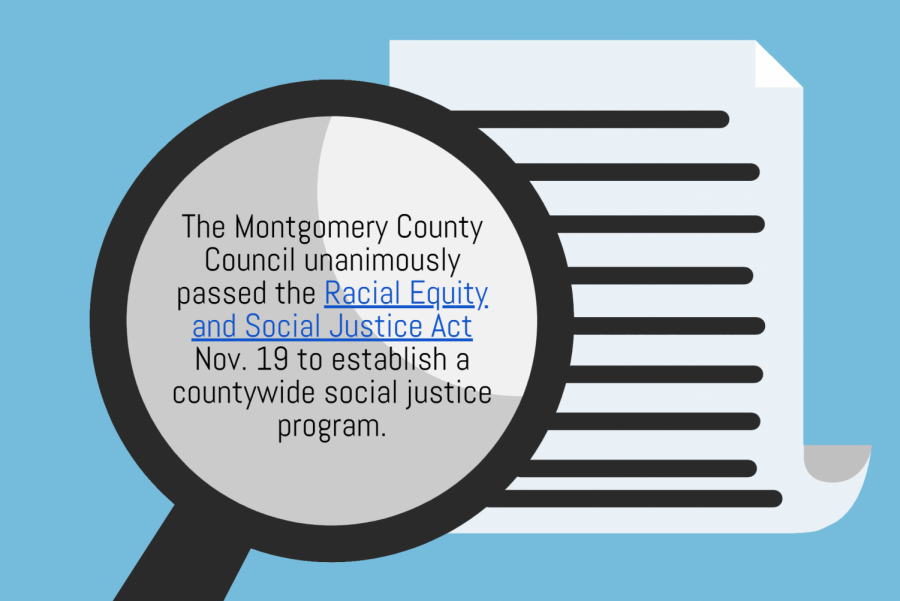Montgomery County Council passes Equity Bill
January 21, 2020
The Montgomery County Council unanimously passed the Racial Equity and Social Justice Act Nov. 19 to establish a countywide social justice program.
The bill outlines measures to improve racial equity, creates an Office of Racial Equity and Social Justice in the county executive branch, mandates all-new budget measures and bills to include an equity impact statement, and requires county offices to make inequality reduction plans. Montgomery County will most likely implement the bill by the end of January.
The bill will also mandate racial equity training for more than 8,000 county staff members and establish a County Advisory Committee composed of seven county representatives and eight public members; the public members will each receive an annual stipend of $2,000 for participating. Amendments to the bill broadened the scope of social justice to include gender identity and sexual orientation as well as healthcare disparities linked to race. These initiatives aim to address deep-rooted social disparities in local government offices and in the rest of the county.
Montgomery County Council President Nancy Navarro spearheaded the act, introducing the bill to the Council in 2019. The bill is based on studies of racial inequities in household income, criminal justice, employment and education.
English teacher Christopher Williams said that in Montgomery County, measures to address social disparities are needed, but complete countywide equity implementation would be difficult. Prior to Whitman, Williams taught at four other schools in MCPS, including Albert Einstein and Gaithersburg High School.
“There’s definitely racial disparity and not a lot of representation outside of Caucasian and Asian students,” Williams said. “We’re kind of resegregated in this county; in a perfect world, we would do it and I would like to see how feasible it is.”
Montgomery County Councilmember Andrew Friedman said that the bill is an institutional response to address an institutional problem, and a step in the right direction.
“There is no end to the effort to address inequities,” Friedman said. “But the bill is a framework and a process in how we will be addressing these issues moving forward; when you fix the process, you change the outcomes.”








